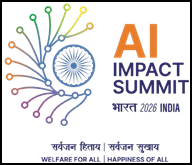Context:
India’s agriculture sector consumes nearly 80% of the country’s freshwater resources, yet irrigation efficiency remains low at around 38%. This inefficiency, coupled with groundwater depletion, threatens long-term food security and environmental sustainability.
Key Issues:
- Overdependence on Groundwater: Unregulated extraction has caused rapid aquifer depletion, especially in north-western states.
- Low Irrigation Efficiency: Traditional flood irrigation leads to water wastage and reduced crop productivity.
- Climate Variability: Erratic rainfall patterns worsen water scarcity and affect farm incomes.
What is Water Intelligence?
Water intelligence focuses on using data-driven tools and advanced technologies for optimal water management rather than merely increasing water supply.
Key Components of Water Intelligence:
- Monitoring & Data Collection: Real-time soil moisture, weather, and water use data through sensors, drones, and IoT devices.
- Predictive Analytics & AI: Artificial intelligence to forecast irrigation needs, optimize schedules, and minimize wastage.
- Automation: Remote-controlled irrigation systems like mobile-enabled pump controls and automated drip irrigation.
- Smart Irrigation Practices: Precision farming techniques that reduce input costs and improve water-use efficiency.
Significance:
- Sustainability: Reduces over-extraction of groundwater and promotes long-term resource management.
- Cost Efficiency: Lowers water and energy costs for farmers while maintaining yields.
- Climate Resilience: Prepares agriculture to adapt to climate-induced water stresses.

















